Understanding subtraction Subtraction Worksheets for Ages 6-9
8 filtered results
-
From - To
Explore our "Understanding Subtraction Worksheets" designed specifically for children aged 6 to 9! These engaging and educational resources help young learners grasp the concept of subtraction through a variety of fun exercises. Our worksheets incorporate visual aids, relatable scenarios, and interactive activities to make subtraction meaningful and enjoyable. As children practice, they'll build confidence, strengthen math skills, and enhance their problem-solving abilities. Perfect for teachers, parents, and homeschooling, these worksheets cater to different learning styles, ensuring every child can succeed in mastering subtraction. Download our printable worksheets today and help your child discover the world of numbers with ease!
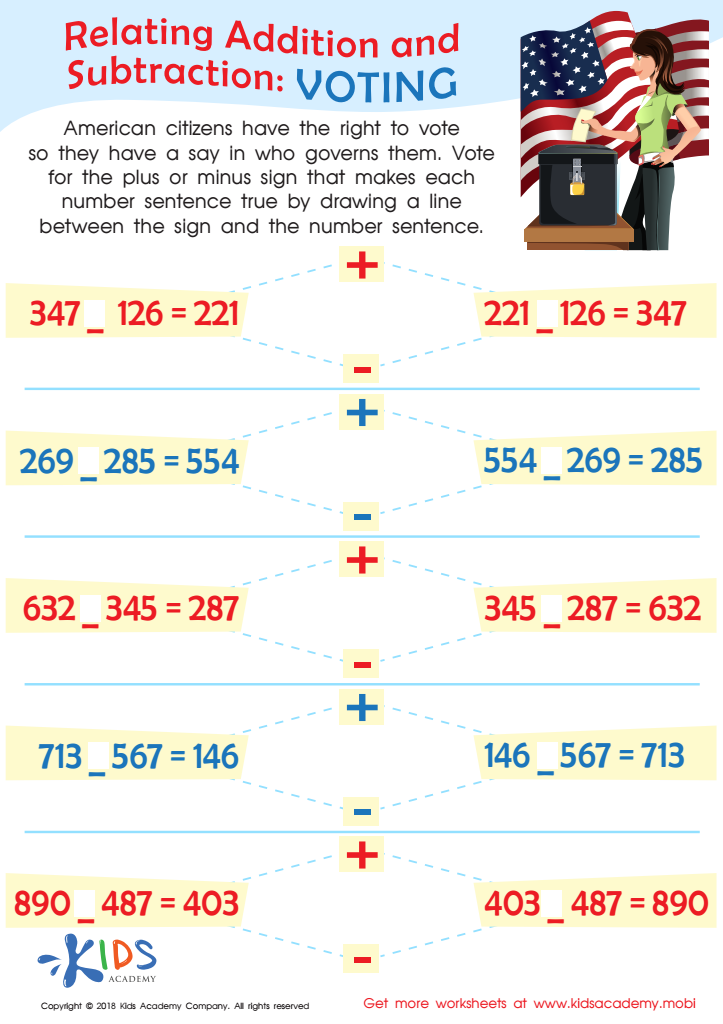

Voting Worksheet
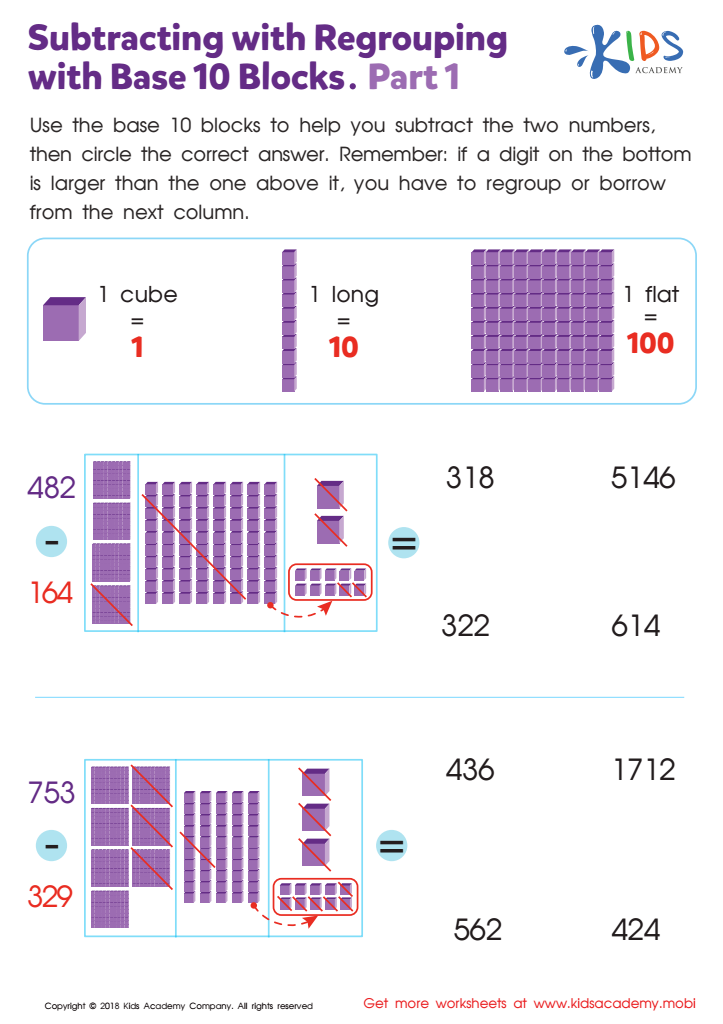

Subtracting with Regrouping with Base 10 Blocks. Part1 Worksheet
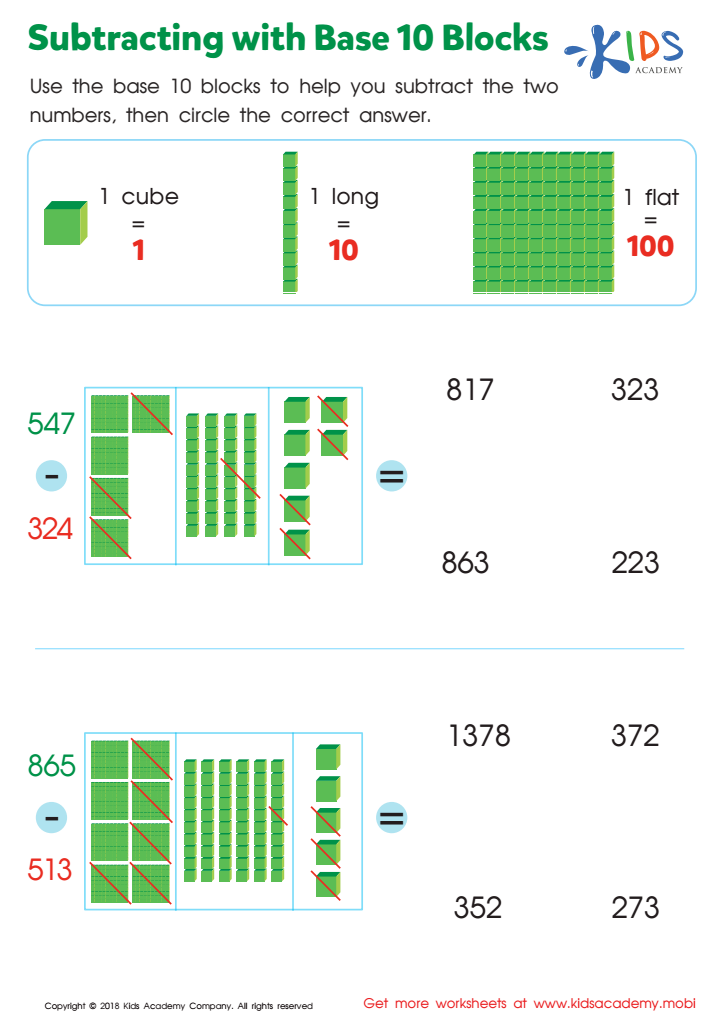

Subtracting with Base 10 Blocks Worksheet
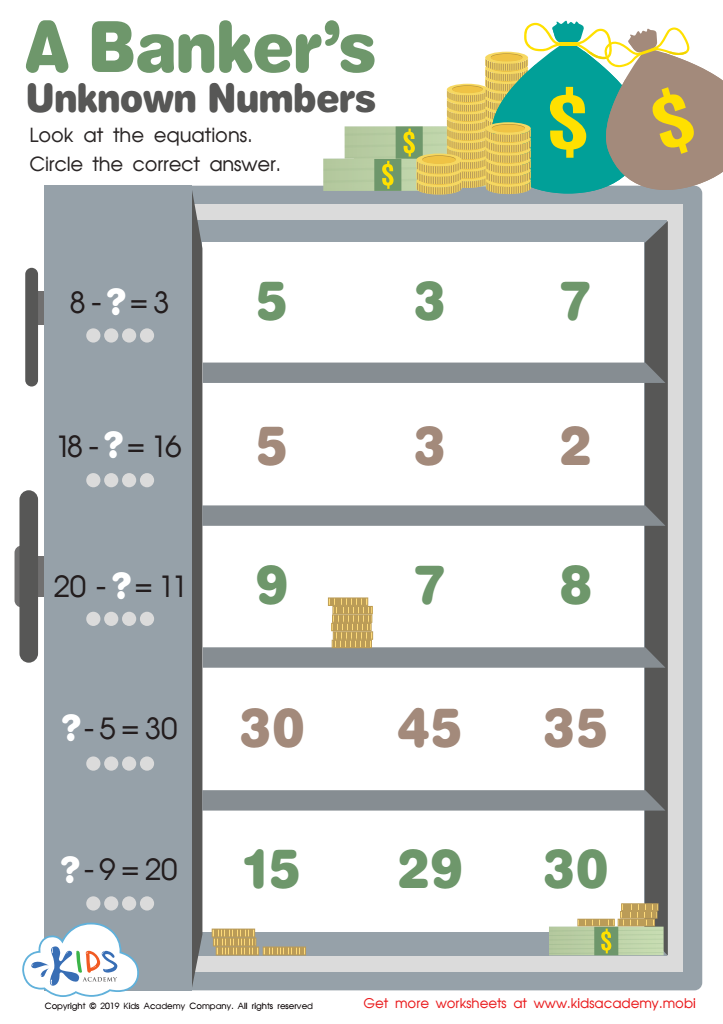

A Banker's Unknown Numbers Worksheet
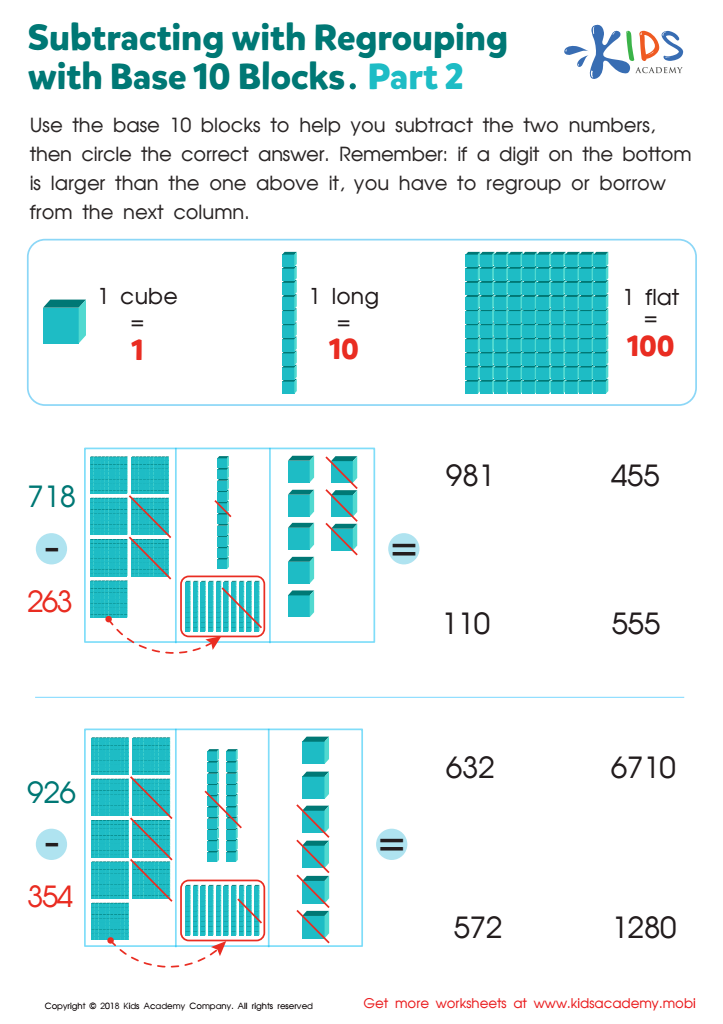

Subtracting with Regrouping with Base 10 Blocks. Part 2 Worksheet
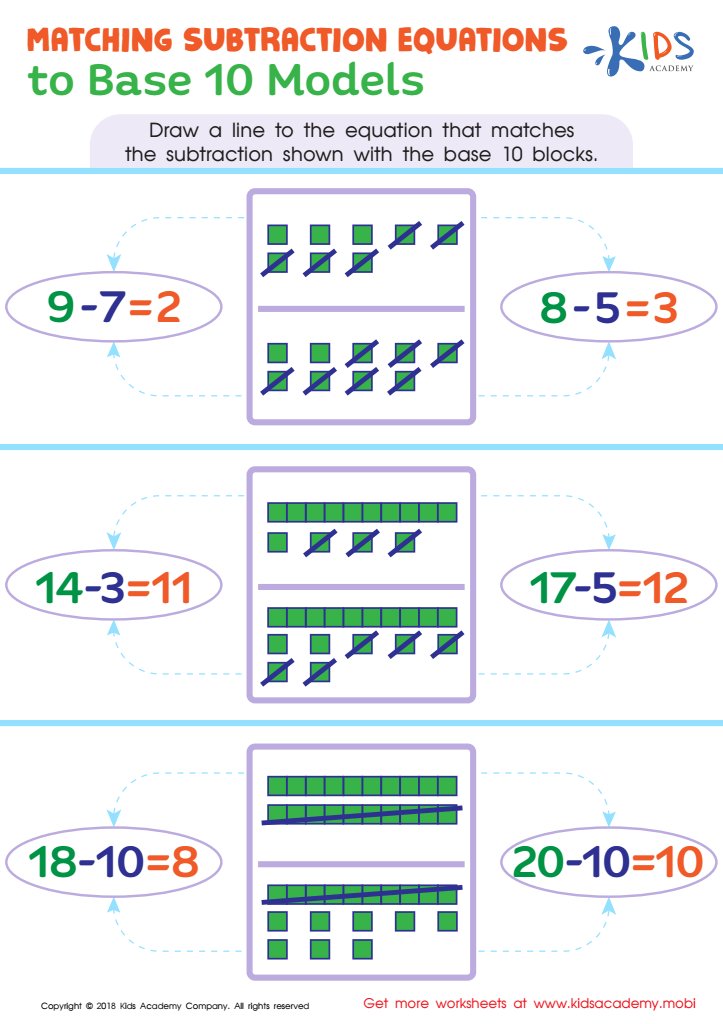

Matching Subtraction Equations To Base 10 Models Worksheet
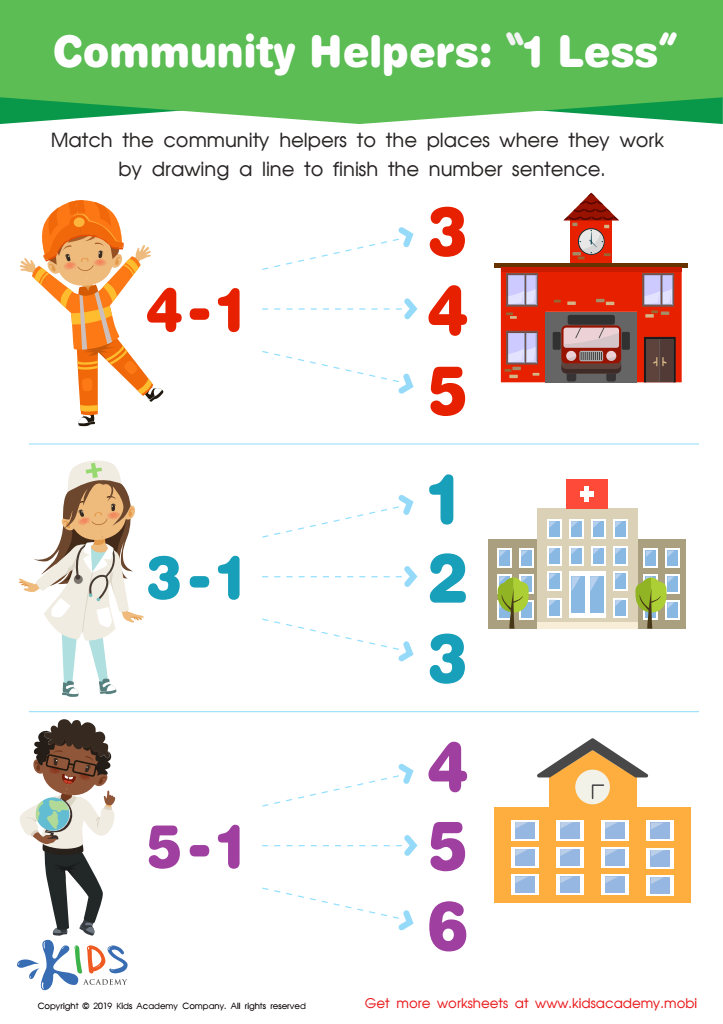

Community Helpers: 1 less Worksheet
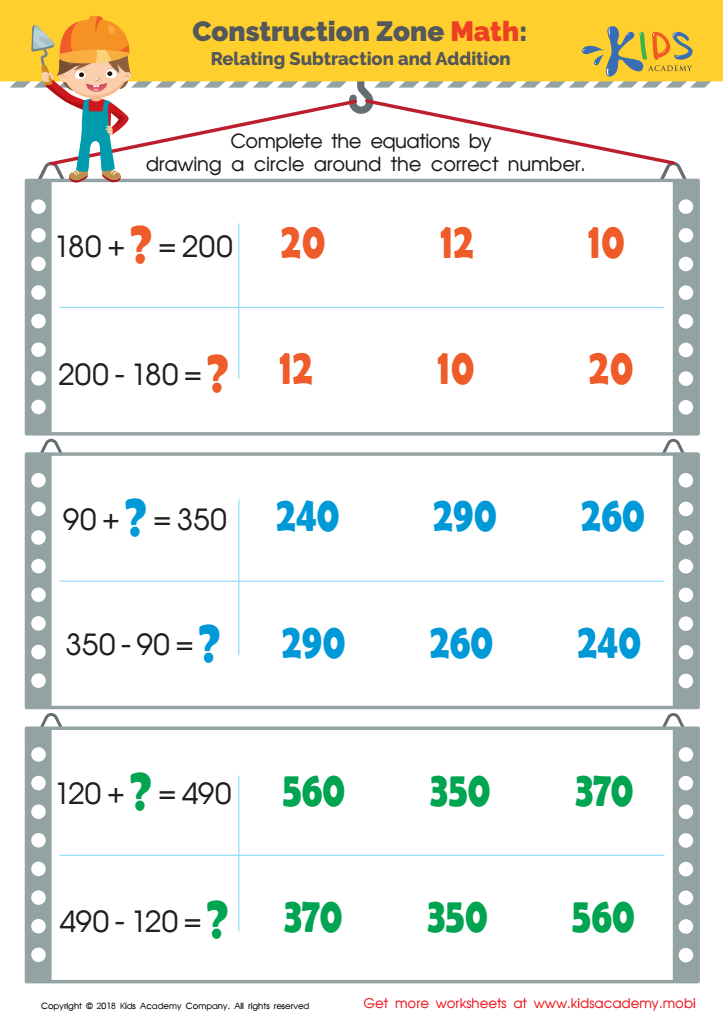

Construction Zone Math: Relating Subtraction and Addition Worksheet
Understanding subtraction is crucial for children aged 6-9, as it forms the foundation for their mathematical learning and everyday problem-solving skills. This stage is critical for cognitive development, where children begin to grasp more abstract concepts. Mastering subtraction promotes logical thinking and enhances their ability to reason through life's challenges, from splitting resources among friends to budgeting their allowance.
Parents and teachers should prioritize subtraction understanding because it directly influences academic performance. A solid grasp of basic subtraction can lead to more advanced skills in addition, multiplication, and division, creating a well-rounded math proficiency. Additionally, it helps develop a sense of number sense, allowing children to make connections between mathematical concepts and the world around them.
Moreover, subtraction aids in developing perseverance and confidence. As children tackle difficult problems, they learn resilience and problem-solving strategies that are beneficial beyond math. Engaging with subtraction through fun and interactive activities cultivates a positive attitude toward learning and builds a lifelong love for math.
Ultimately, fostering a deep understanding of subtraction empowers children, setting them on a path to success both academically and in everyday life. Parents and teachers play a critical role in shaping this essential skill.
 Assign to My Students
Assign to My Students
















